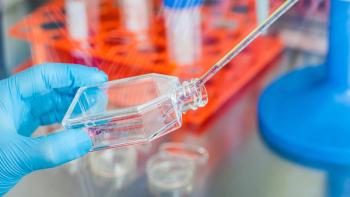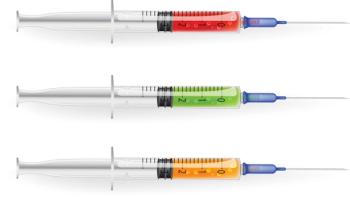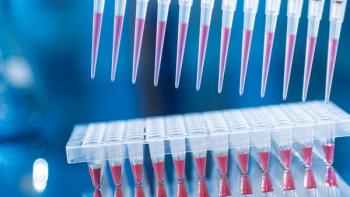
Horiba has joined a consortium aimed at accelerating the development of process analytical technologies for cell and gene therapy manufacturing

Horiba has joined a consortium aimed at accelerating the development of process analytical technologies for cell and gene therapy manufacturing

Sanofi’s new Pennsylvania facility expands production of Fluzone High-Dose Quadrivalent flu vaccine.

Yposkesi is building its second commercial facility for cell and gene therapy manufacturing at its campus on Corbeil-Essonnes, France.

Optima has teamed up with the Robert-Bosch-Krankenhaus and Heidelberg University to develop a unit for decentralized, automated production of CAR-T cell therapies.

Novavax’s COVID-19 vaccine is 90.4% effective and maintains efficacy when administered with an influenza vaccine.

The CGT Catapult has formed a consortium aimed at advancing the technology development and lowering costs of cell and gene therapy manufacturing.

The vaccine is now authorized for ages 12 and older in European Union member states and the UK.

VIVEbiotech has opened its new lentiviral vector manufacturing facilities in Spain, expanding capacity for lentiviral vectors for use in cell and gene therapies.

AGC Biologics has partnered with BioNTech to further supply plasmid DNA starting material from its Heidelberg, Germany, facility for the Pfizer-BioNTech COVID-19 vaccine.

FDA has granted accelerated approval to Biogen for Aduhelm (aducanumab), a new mAb treatment for Alzheimer’ disease.

The Module Type Package standard is now supported in Emerson’s DCS and PLCs.

Currently, PNI offers a Genetic Medicine Toolkit, including its GenVoy LNP delivery platform and NanoAssemblr microfluidic-based nanoparticle manufacturing platform, for the development of genetic medicines.

The emergence of new biotherapeutics is both the driver and result of innovative drug development technologies.

Controlling certain atmospheric conditions in a closed NGI processing chamber can reduce bioburden without disinfectants.

Cell-free expression is promising in preclinical applications, but still presents challenges to scale up for commercial production.

Recent innovations in chromatography resins offer promising advantage in downstream bioprocessing.

Digitalization of bioprocessing operations, equipment, and facilities can improve workflow and output, but maintaining data integrity is a concern.

Container and equipment innovations expand applications.

The increased number of regulatory filings for cell and gene therapies requires reevaluation of bioassay methods because of their complexity.

Expanded interest in advanced drug manufacturing and continuous production methods calls for more flexible production systems and regulatory policies.

The Discovery Labs has signed a foundational lease with the University of Pennsylvania Gene Therapy Program to build a new life sciences cluster in King of Prussia, Pa.

Moderna and Aldevron have expanded their existing collaboration to support Moderna’s COVID-19 vaccine program as well as additional clinical programs in Moderna’s pipeline.

Biogen and Ginkgo Bioworks have partnered to develop a next-generation AAV production platform to accelerate Biogen’s gene therapy drug development efforts.

Codagenix and Univercells have partnered on a research collaboration to pursue an undisclosed, high-priority human vaccine target.

Samsung Biologics plans to support the production of hundreds of millions of doses of Moderna’s vaccine to supply to markets outside of the United States beginning in the third quarter of 2021.